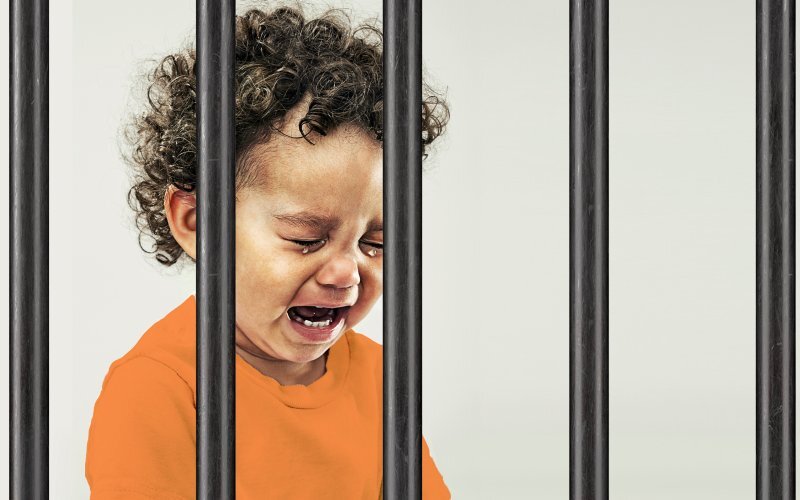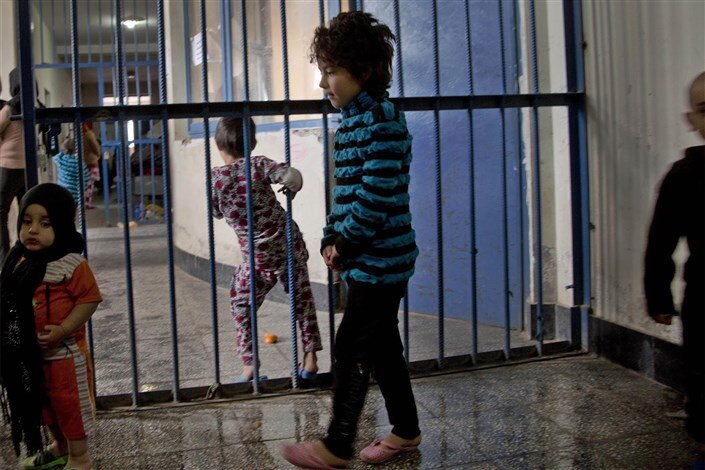Maternal rights in the shadow of tall walls; How is maternal justice possible?

According to Mehr Judicial Reporter, Sepideh Rezai, a senior criminal and criminology expert, addressed the importance of the maternal face of justice, the details of which are as follows;
Living with parents is one of the first children's needs, but a child whose parents are in prison will not tastify the true meaning of having a warm family center. The prison has many destructive and vulnerable consequences for the emotional and personality development of children and has a negative and devastating impact that continues to make children's intellectual and social life difficult for years later.
Now, the idea of Jankeh's pregnant or young children in prisons who have to give birth to or take their children with them because there is no one to take care of her, and this is accompanied by a lot of harm. The life of these children begins, not with the mother's morning smile, but with the sound of the prison's iron door closing. Where the first baby image of the world is the long cell ceiling, fluorescent light and tired faces behind the bars.
When one sentence imprisons two lives
At first glance, the issuance of a prison sentence for a offender seems to be the execution of justice; But when it comes to a mother with a young child, this justice becomes a complex issue.
Inmates' mothers not only pay for the past error, but innocent children are also victims of the marginalization of the law; Children who are neither criminals nor doomed, but spend their lives with hot separation, social stigma, and lack of mental security.

Children in clause: Narrative of hidden suffering
Leila, 2 years oldBorn in one of the women's prisons in the south of the country. Her mother was arrested for the sake of the robbery. Leila has no picture of the park, baby TV or sleeping in her bed. For him, the metal fence and the sound of the guard siren are part of his childhood.
Somayeh, a 5 -year -old mother from KermanshahImprisoned for the first time for drugs. He brought her four months to jail. She lives in one of the other four women, without sufficient facilities to keep the baby. When his child cries, others are protesting; When it is silent, Somayeh is concerned about a silence that may be hidden.
Part of the prison women have young children; Many of them are children under the age of 5 who are either in prison with the mother or have been entrusted to family and support centers.
In cases where the child is not in jail, close relatives of most grandmothers or aunts accept responsibility for maintaining, but neither with sufficient qualifications nor with the emotional support needed. Occasionally, children are transferred to boarding welfare centers, where they are full of educational, psychological and emotional challenges.

Inefficient rules, disregarded policies
In many countries, especially in developing countries, the judicial system does not pay close attention to one's maternal status when issuing a sentence. Even in cases where the mother commits light or non -violent crimes, options such as home imprisonment, electronic or social services are not used, and the prison remains the only response of the criminal justice system.
In Iran, although there are laws about the child's association with the mother until the age of eight, there is virtually no proper infrastructure for these laws in most prisons. Infant maintenance centers in some prisons lack nurse, counseling or child trainer and have been more reduced to sleep and food.
The heavy price of separation
Psychologists have warned about the child's separation from the mother in the early years, which can cause irreparable damage. Damage such as: attachment disorders, increased risk of depression, anxiety and emotional instability in adulthood, aggression, reduction of social skills and difficulty in communicating, academic failure, and high -risk behaviors in adolescence.
Even the children who live with the mother in jail are not safe from harm; Limited space, lack of play space, lack of education, and social stigma, destroy their childhood. They experience a child in situations that are not only supported, but also adding a new mental wound to their maternal wound.

Experience of countries; The ways they have been tested
In some countries, qualified mothers can reside with their child in separate units, with home -based space and educational and psychological programs. The program has reduced the repetition rate by up to 5 %.
In some prisons, rooms for mother and child meeting with playgrounds, color furniture and family counseling. Target: Maintaining an emotional bond, without a child's mental humiliation
In some countries, mothers who have committed non -violent crimes have provided family rehabilitation centers that provide mother's residence with child in controlled but non -prison environments.
In Iran, there are sections for infants up to the age of five, but the lack of educational, psychological and safe space is still a serious problem. Also, most mothers after the age of 5 should take the child to family or support centers, without any psychological or legal support.
Legal nodes
Mothers have no other option due to the lack of legal mechanism for determining alternative penalties in specific cases, not considering the interest of the child in the process of hearing and the inconsistencies between the judiciary, welfare and support agencies.
While during the time of the Prophet (peace be upon him), in the story of the woman of Baniqad, the execution of adultery was delayed until the end of the child's breastfeeding period. A historical sign of child rights in many of today's cases is not the case.

Experience of life outside of jail; Bridge toward the child's mental development
A child whose only environment is the cold and high prison walls will have no understanding of society, human communication, public spaces or family relationships. This gap of understanding of real life can lead to isolation, disruption to social development, and a sense of being in the coming years of his life.
One of the tactic solutions is to design the “support” programs of the mother and child out of prison in completely controlled and secure conditions; So that the child can have a tangible experience of living in the community by attending urban spaces (parks, libraries, homes, shops). These traffic can be done as an hourly leave of mother-child to visit first-rate relatives, controlled visits to urban centers with the presence of workers or cultural or educational programs outside prison for mothers and children.
Designing and implementing these projects with the participation of the judiciary, the Welfare Organization and the support agencies can play a significant role in social development, reduced separation anxiety, and the child's readiness to enter society.

How is maternal justice possible?
As a solution, maternal justice can form alternative penalties for mothers with young children, especially in non-violent crimes, the creation of maternal-child rehabilitation centers with home-like space, psychological services, and parenting training, child-centered meetings, Post -release mothers' empowerment: Professional training, family counseling, and support to return to the role of maternal and through media and documentary campaigns; It is possible to reform the community's view of the offender's mother to reduce social stigma.
Mother's imprisonment is not just a judicial order; This is the beginning of a chain of psychological, social and structural damage that also skips the child. In a society that wants the health of the next generation, the child's right and emotional bonds cannot be indifferent; A child who is deprived of mother's arms today may respond to society tomorrow with violence and violence, it is time for justice to take on a maternal face.
(tagstotranslate) Mother (T) Children (T) Prison (T) Prisoners of Invite Crime (T) Judicial (T) Judiciary (T) Criminal Criminal (T) Criminal Criminal
Source:mehrnews